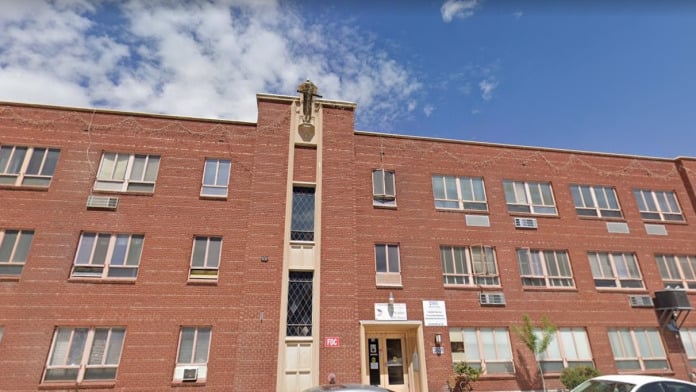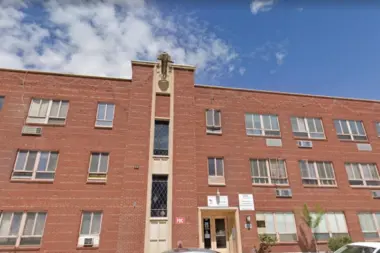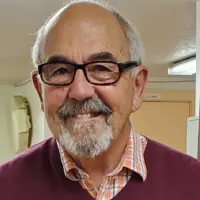Please come visit and scrutinize their policies, practiced and employees. The place is open 24/7 letting patients go out and come back with no restrictions.
About Recovery Alliance of El Paso – Casa Vida de Salud
Casa Vida de Salud has 30 beds in their residential substance use treatment center in El Paso operated by the Recovery Alliance. The Recovery Alliance of El Paso has been providing peer services to individuals, families and communities in recovery across West Texas since 1998. Casa Vida de Salud was established in 2005 to provide structured and integrated residential care for adults with substance use disorders and co-occurring conditions. The program lasts 90 days and has helped over 3,000 individuals overcome substance dependence.
A unique feature is that it’s peer-developed, peer-run, and rooted in 12 Step practices. Staff members and volunteers include individuals who’ve successfully recovered from substance dependence, co-occurring conditions and mental disorders. They’re selected primarily for their ability to inspire and guide residents, leveraging their personal recovery experiences. Most are also active members of their 12 Step fellowships, medication-assisted recovery programs, and faith-based recovery ministries.
Pathway To Lasting Healing
Casa Vida de Salud creates a pathway for lasting abstinence for its residents through peer-backed and integrated residential care. Residents work with staff members to create a personalized recovery plan that guides their healing journey. The program involves weekly meetings with a certified recovery coach, three daily recovery support groups, and substance use counseling. This helps residents develop relapse prevention strategies and work through personal challenges that may hinder lasting healing.
Residents are introduced to 12 Step and faith-based recovery fellowships and enjoy daily access to outside recovery support meetings. This encourages ongoing participation in the recovery community and strengthens their commitment to sobriety. Emphasis is placed on the spiritual nature of successful recovery.
Their large and fully equipped commercial kitchen ensures special nutritional needs are met. Clients also participate in social and recreational events to have fun in recovery.
Most residents transition to Recovery Alliance’s Supportive Sober Housing following the program completion. They attend informational workshops, life skills development classes, as well as career and business planning sessions. Residents are supported in finding a stable job and housing as they reenter the community. Residents who completed their residential program at Casa Vida de Salud enjoy two years of ongoing support.
Recovery In El Paso
Casa Vida de Salud is situated at Hueco Avenue in the Five Points neighborhood of El Paso near Lincoln Park and the Segundo Barrio. The facility is three miles east of downtown and isn’t far from Chamizal National Memorial and El Paso International Airport. Interstate 10 is two miles west and offers direct access to nearby Las Cruces in New Mexico and Horizon City in Texas. Sun Metro Bus Routes 2, 8 and 9 serve Hueco Ave and the surrounding area.
Latest Reviews
Rehab Score
Gallery


Other Forms of Payment
Self-pay involves paying for treatment out of your own pocket. You can use savings or credit, get a personal loan, or receive help from family and friends to fund your treatment. If you don't have insurance or your insurance plan doesn't cover a specific program, self-pay can help ensure you still get the care you need.
Private insurance refers to any kind of healthcare coverage that isn't from the state or federal government. This includes individual and family plans offered by an employer or purchased from the Insurance Marketplace. Every plan will have different requirements and out of pocket costs so be sure to get the full details before you start treatment.
Medicaid is a state based program that helps lower-income individuals and families pay for healthcare. Medicaid covers addiction treatment so those enrolled can use their coverage to pay for rehab. When a program accepts Medicaid the client often pays very little or nothing out of their own pocket.
Medicare is a federal program that provides health insurance for those 65 and older. It also serves people under 65 with chronic and disabling health challenges. To use Medicare for addiction treatment you need to find a program that accepts Medicare and is in network with your plan. Out of pocket costs and preauthorization requirements vary, so always check with your provider.
Addiction Treatments
Levels of Care
Residential treatment programs are those that offer housing and meals in addition to substance abuse treatment. Rehab facilities that offer residential treatment allow patients to focus solely on recovery, in an environment totally separate from their lives. Some rehab centers specialize in short-term residential treatment (a few days to a week or two), while others solely provide treatment on a long-term basis (several weeks to months). Some offer both, and tailor treatment to the patient's individual requirements.
Residents of a sober living home in Texas reside at the halfway house with others who have agreed to abstain from substances and practice sober-living skills. The relationships and accountability formed here can help individuals strengthen their mental health and achieve long-term recovery. Residents share common spaces such as kitchens and back yards, share meals together, and share household responsibilities such as cooking and cleaning.
Treatments
The goal of treatment for alcoholism is abstinence. Those with poor social support, poor motivation, or psychiatric disorders tend to relapse within a few years of treatment. For these people, success is measured by longer periods of abstinence, reduced use of alcohol, better health, and improved social functioning. Recovery and Maintenance are usually based on 12 step programs and AA meetings.
During rehab in Texas, you'll deal with underlying issues that contribute to addiction. By addressing these challenges and learning healthy ways to cope with them, you'll develop strategies that help you live a drug-free lifestyle.
Many of those suffering from addiction also suffer from mental or emotional illnesses like schizophrenia, bipolar disorder, depression, or anxiety disorders. Rehab and other substance abuse facilities treating those with a dual diagnosis or co-occurring disorder administer psychiatric treatment to address the person's mental health issue in addition to drug and alcohol rehabilitation.
A combined mental health and substance abuse rehab has the staff and resources available to handle individuals with both mental health and substance abuse issues. It can be challenging to determine where a specific symptom stems from (a mental health issue or an issue related to substance abuse), so mental health and substance abuse professionals are helpful in detangling symptoms and keeping treatment on track.
Opioid rehabs specialize in supporting those recovering from opioid addiction. They treat those suffering from addiction to illegal opioids like heroin, as well as prescription drugs like oxycodone. These centers typically combine both physical as well as mental and emotional support to help stop addiction. Physical support often includes medical detox and subsequent medical support (including medication), and mental support includes in-depth therapy to address the underlying causes of addiction.
Clinical Services
Research clearly demonstrates that recovery is far more successful and sustainable when loved ones like family members participate in rehab and substance abuse treatment. Genetic factors may be at play when it comes to drug and alcohol addiction, as well as mental health issues. Family dynamics often play a critical role in addiction triggers, and if properly educated, family members can be a strong source of support when it comes to rehabilitation.
Group therapy is any therapeutic work that happens in a group (not one-on-one). There are a number of different group therapy modalities, including support groups, experiential therapy, psycho-education, and more. Group therapy involves treatment as well as processing interaction between group members.
In individual therapy, a patient meets one-on-one with a trained psychologist or counselor. Therapy is a pivotal part of effective substance abuse treatment, as it often covers root causes of addiction, including challenges faced by the patient in their social, family, and work/school life.
Recreational therapy (aka therapeutic recreation) uses creative and fun activities to help with addiction recovery. Recreational therapists lead patients in entertaining and engaging activities like sports or games; art (drawing, painting, sculpture); drama, music, and dance; and/or community outings (field trips) to improve patients' physical, social, and emotional well-being.
Staff & Accreditations
Staff

Ben Gray Bass
Executive Director

Mario Mendoza
Operations Director
Accreditations

State Licenses are permits issued by government agencies that allow rehab organizations to conduct business legally within a certain geographical area. Typically, the kind of program a rehab facility offers, along with its physical location, determines which licenses are required to operate legally.
State License: Texas
License Number: 4002
Contact Information
3501 Hueco Ave
#22
El Paso, TX 79903